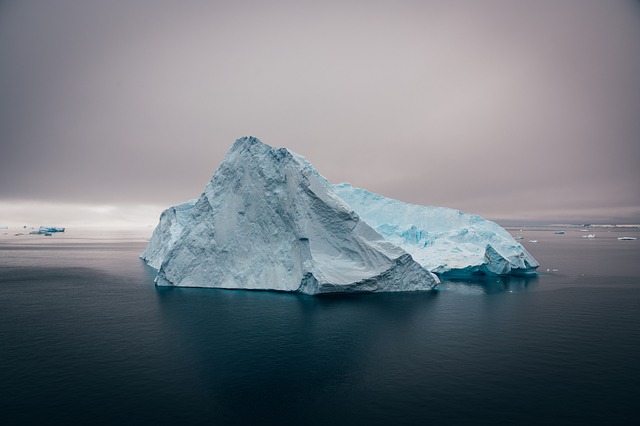Cold therapy, including cold plunges and water immersion in freezing temperatures, is a powerful tool to regulate the nervous system and support mental health. This sudden exposure to cold triggers physiological responses that activate the 'rest and digest' mode of the parasympathetic nervous system, reducing stress hormones and promoting relaxation. The practice has been shown to effectively manage stress, anxiety, and enhance overall mental well-being through its calming effects, offering a natural, accessible, and affordable method for achieving emotional balance and stress relief. Incorporating cold plunges into your routine can provide significant benefits in regulating the nervous system and promoting tranquility.
“Unwind and reconnect with your body’s natural balance through the ancient practice of cold therapy. This powerful tool offers a unique approach to nervous system regulation, particularly in alleviating stress and anxiety. In this comprehensive guide, we explore how a simple cold plunge can be a game-changer for mental health.
Discover the science behind cold water immersion and its calming effects on the mind. Learn about the benefits of regular cold exposure for reducing anxiety and promoting relaxation, making it an effective stress management tool. Get ready to dive into a refreshing journey towards inner peace.”
Understanding the Nervous System and its Regulation
The nervous system, a complex network of communication between our bodies and minds, plays a pivotal role in regulating our responses to internal and external stimuli. It consists of the central nervous system (brain and spinal cord) and the peripheral nervous system, which together coordinate bodily functions, emotions, and reactions to stress. Regulation within this system is essential for maintaining optimal mental and physical health.
Cold therapy, particularly through practices like cold plunges or water immersion in freezing temperatures, has gained recognition as a powerful tool to support nervous system regulation. The sudden exposure to cold triggers a cascade of physiological responses, including the activation of the parasympathetic nervous system, often referred to as the ‘rest and digest’ mode. This activation promotes relaxation, reduces stress hormones, and calms the mind, making cold therapy an effective approach for managing stress and anxiety, and enhancing overall mental health through its calming effects.
The Role of Cold Therapy in Calming the Nervous System
Cold therapy, particularly in the form of a cold plunge or cold water immersion, has gained recognition as an effective tool for nervous system regulation and mental health support. When you subject your body to a brief period of cold exposure, such as diving into a cold lake or taking a refreshing cold shower, it triggers a series of physiological responses that have profound calming effects.
The cold stimulus sends signals to the brain, which then initiates a process known as the “stress response.” This involves the release of hormones like norepinephrine and cortisol. However, unlike prolonged stress, short-term cold exposure can actually help reduce anxiety levels. The cold water helps constrict blood vessels, slowing heart rate and promoting a sense of tranquility. Moreover, it stimulates the vagus nerve, which plays a key role in regulating the nervous system, leading to improved emotional balance and reduced symptoms of stress and anxiety.
Scientific Evidence: Cold Plunges and Mental Health Benefits
Scientific research has shed light on the surprising mental health benefits of cold therapy, particularly through practices like cold plunges and cold water immersion. Numerous studies have explored the impact of cold exposure on the nervous system, demonstrating its potential to reduce stress and anxiety. Cold plunge for stress and anxiety has been shown to stimulate the release of norepinephrine, a neurotransmitter involved in the body’s ‘fight or flight’ response, which can help regulate emotional reactions.
The calming effects of cold plunges extend beyond physiological responses. Immersion in cold water activates the parasympathetic nervous system, promoting relaxation and reducing anxiety symptoms. Benefits of cold plunges for stress relief include decreased levels of cortisol, often referred to as the stress hormone, which is linked to feelings of tension and fear. This natural therapy offers a simple yet effective way to manage mental health, providing an accessible and affordable alternative for those seeking relaxation and emotional balance through cold water therapy for mental health.
Incorporating Cold Water Immersion into Your Stress Management Routine
Incorporating a cold water immersion into your stress management routine can be a powerful tool for regulating your nervous system and promoting mental well-being. The practice, often referred to as a cold plunge or ice bath, involves submerging yourself in cold water, typically below 59°F (15°C), for a brief period. This simple yet effective technique has gained popularity among individuals seeking natural ways to manage stress and anxiety.
The benefits of cold plunges for stress relief are well documented. The sudden exposure to cold triggers a physical response, increasing heart rate and stimulating the release of endorphins, often referred to as the body’s “feel-good” hormones. This reaction helps to reduce muscle tension and promotes a sense of calm. Moreover, the calming effects of cold water immersion can aid in anxiety reduction by distracting the mind from stressful thoughts and providing a sense of control over one’s physical sensations. It offers a unique way to engage in self-care, allowing you to reconnect with your body and experience a profound state of relaxation.
Cold therapy emerges as a powerful ally in nervous system regulation, offering a natural and effective way to manage stress and anxiety. Scientific evidence highlights the significant benefits of cold plunges for mental health, providing a refreshing approach to relaxation. By incorporating cold water immersion into daily routines, individuals can experience reduced anxiety, improved mood, and enhanced overall well-being. Embracing the calming effects of cold plunges is not just a trend but a proven strategy to navigate life’s challenges with resilience and a renewed sense of tranquility.
